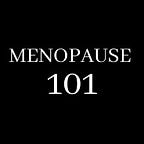Why (and How) Your Skin and Hair Change During Menopause
If you’re a woman of a certain age (namely mid-to-late 40s, though perimenopause can begin as early as our late 30’s and, if medically induced, at any age), you may be noticing some not-totally-welcome changes to your skin and hair. In fact, as your hormone levels fluctuate and estrogen levels drop during perimenopause and menopause, your skin and hair often hold less water, which can make them appear dry and thin. Let’s discuss.
Seriously, Why Is My Menopausal Skin Dry Like the Desert?
During the stages of menopause, a loss of estrogen leads to less collagen (which decreases the skin’s elasticity) and less of the substances that allow your skin to attract and hold in moisture (hyaluronic acid and glycosaminoglycans), which can make your skin appear, much drier than any of us would like. While this loss is associated with aging in general, the drop in estrogen intensifies this change, also decreasing the amount of sebum oil glands produce, leading to further dryness. If you live in a dry climate, or, in the winter, use dry heat, the situation is made even worse. Drinking enough water is important at every stage of a woman’s life, but keeping hydrated could be especially essential during the menopause transition (keep in mind some research suggests water intake doesn’t impact the health or appearance of our skin). That means taking in at least 8 glasses a day (many studies show that more than 8 glasses — but not too many more — are even better). Other tricks: Avoid washing your hair daily, use a moisturizing shampoo, or co-wash, regularly hydrate skin with moisturizers and creams that contain ingredients that promote and attract moisture, like ceramides, shea butter, glycerin, and hyaluronic acid, and avoid skin-drying activities like long, hot showers. Focusing on a healthy diet rich in fruits, vegetables, healthy fats, quitting smoking and avoiding/limiting alcohol will benefit your overall health, and — bonus — the appearance of your skin as well.
How estrogen may affect your skin and hair
We know that after a certain age, it’s natural to begin to lose collagen and elastin, the two main proteins in our skin that help keep it plump and firm. Declining estrogen levels during menopause accelerate the loss of these important skin components, which is why — on top of the moisture loss outlined above — you may notice more wrinkles during menopause and also more sagging.
Because estrogen promotes water retention and hair density and fullness, when we lose estrogen as part of menopause, many of us experience hair thinning and shedding. Declining estrogen levels can also cause your scalp to feel dry and itchy, and even impact the amount of moisture in your hair. Hormones, particular androgens, play a large role in hair health. While we know estrogen plays a role it has been less extensively studied and is less well understood. Hair follicles have hormone receptors, and the change in hormone levels and ratios may change the shape of your hair follicles, thus changing the texture of your hair. These changes have been noted: decrease in hair density & diameter, increase facial hair (both fine and coarse hair), and decrease in body and scalp hair. This decrease in scalp hair may be experienced as an overall thinning (increased shedding) or more noted, loss along our temples and middle part, rendering it unusually dry and frizzy.
Beyond Dryness: Other Common Skin and Hair Changes During Menopause
Oily Skin
Yes, we know it’s unfair to have greasy skin along with a sagging neck. But some women may experience an oiler skin appearance during perimenopause and menopause as the skin’s sebaceous glands make thicker sebum. (And yes, some women sebaceous glands are producing LESS oil, too.) This tends to be related to the ratio of testosterone-related hormones and estrogen- testosterone drops more slowly than estrogen, so some women experience a relatively higher level of testosterone. This higher ratio of testosterone also leads to our next topics:
Facial Hair
As our hormone levels skyrocket and crash during menopause, we may often feel as if we’re growing the facial hair of a particularly hirsute teen boy, particularly on the upper lip and chin. While that hair is typically thin and soft — peach fuzz, so sweet — but you may also discover thicker, rapidly growing rogue hairs in new areas
Menopausal acne
OK, bummer news: Menopause, unfortunately, does not always mean the end of acne, you may have the same skin outbreaks and flare ups you’ve always experienced. Or you might have a whole new pattern emerge. Sometimes those outbreaks may be worse. However the way we treat pimples during and post-menopause is not the same as before. That’s because, most store-bought acne treatments can be too harsh for dry, delicate older skin. The best remedies for menopausal acne come straight from your dermatologist.
The information provided on StateOfMenopause.com is not intended and should not be construed as medical advice, treatment, or diagnosis. Always seek the guidance of a qualified healthcare provider with any questions or concerns regarding your health.
